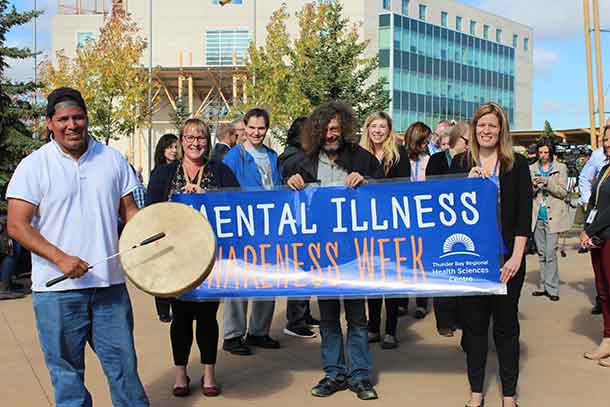 THUNDER BAY – Northwestern Ontario is facing a rapidly growing mental illness and addiction crisis. Thunder Bay Regional Hospital treats thousands of visits annually in this regard, and our city’s detox bed numbers are inadequate. Thunder Bay has become one of the newly-ranked most dangerous cities in Canada and according to police officials the problem can be directly linked to increased levels of alcohol and drug abuse.
THUNDER BAY – Northwestern Ontario is facing a rapidly growing mental illness and addiction crisis. Thunder Bay Regional Hospital treats thousands of visits annually in this regard, and our city’s detox bed numbers are inadequate. Thunder Bay has become one of the newly-ranked most dangerous cities in Canada and according to police officials the problem can be directly linked to increased levels of alcohol and drug abuse.
Decades ago the government mandated closure of many facilities that specifically treated mental illness and addictions. The plan was to integrate these individuals into society, with the help of support systems. Optics will tell you that this is failing!
There are currently many integration homes in our city. For some people who are rational and have coping skills this might be an appropriate decision, but for others who may be extremely mentally challenged, self-abusive, obstructive or violent, a group home is not suitable.
We no longer have an appropriate place to address their needs.
For a continuum of care that heals both the patient and the family, an all-inclusive facility is optimum. Currently, our fragmented system makes it difficult for the patient and family to navigate and promotes miscommunication among treatment professionals.
The issue of stigma seems to be a concern. What is so stigmatizing about treating mental illness and addictions at a designated site? It seems like a common-sense fit. Toronto and London have recently built multi-million dollar structures for exactly this purpose. Our existing system merely adds fuel to the stigma scenario. The public forms their opinion of the mental illness and addiction issue when they view an individual in full crisis on the street, in an emergency room visit or after reading about related criminal activity in the newspaper. Vic Toews, Canada’s Public Safety Minister says “Canadian penitentiaries are becoming the largest psychiatric facilities in the country.” This has been a problem for decades, since the closure of many mental health locations.
A proper facility would incorporate all aspects of care.
- emergency assessment with electronic link to main hospital for consultation.
- inpatient mental health unit
- forensic mental health unit
- outpatient consultation and treatment clinics
- detoxification crisis unit
- group therapy sessions
- methadone maintenance
- family education and support
- abuse and trauma therapy
- nutrition and activities of daily living
- integration into the community and the workplace
While I am all for infrastructure improvements and prosperity for the Northwest, I believe that our priorities have become skewed. I appeal to municipal and provincial officials to recognize the importance of re-opening our mental health facility. Heal our city first, and then invite the world! This is the Multiplex we need.
Alana Bishop RN




